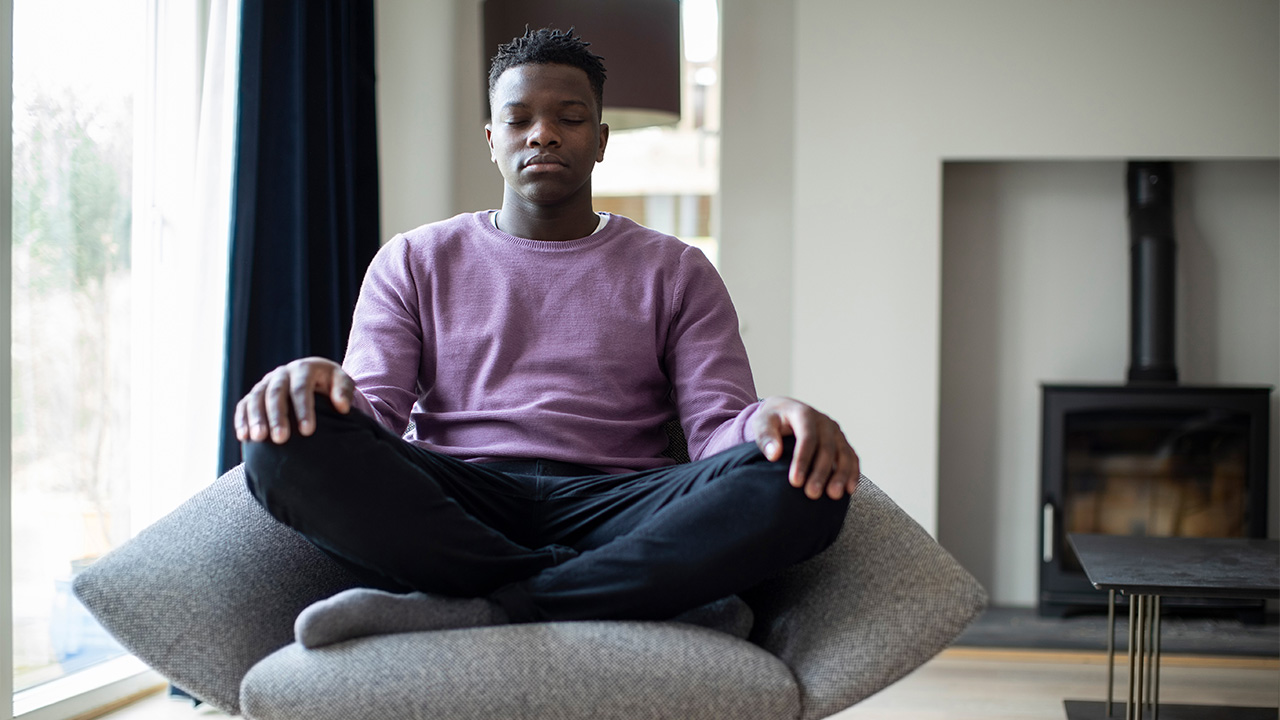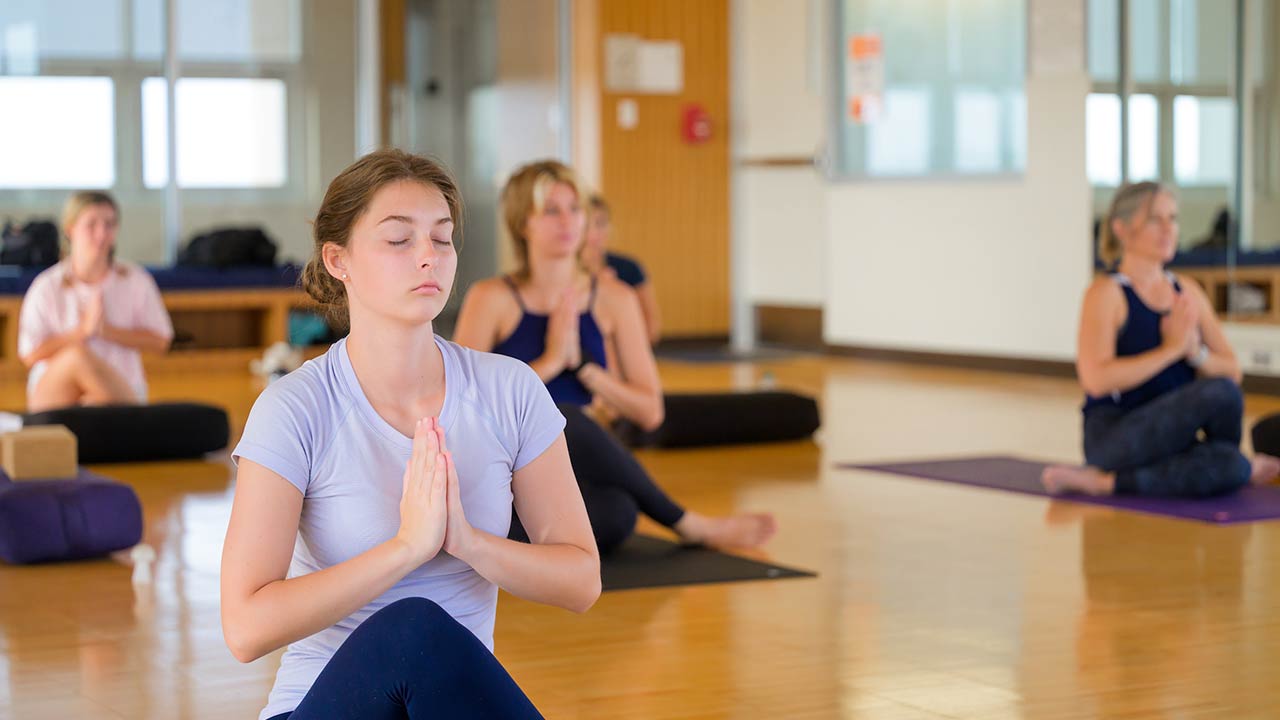content body

Associate Professor Diana Samek displays her own artwork in her campus office.
Adolescents and young adults are no strangers to change. From entering those murky middle school years to adjusting to life after high school and possibly college, their lives are peppered with transitions and uncertainty.
These turbulent time periods have been linked to high rates of mental health conditions and substance use. Auburn University’s Diana Samek, associate professor in Human Development and Family Science within the College of Human Sciences, has dedicated her career to studying what can be these trickier times.
“I’m very curious about how adolescents and young adults end up the way that they do,” Samek said. “I study the links between close relationships, social context and personality in connection to topics like mental health and substance use.”
Samek’s research on social and personality influences on adolescent and young adult substance use was funded by the NIH’s National Institutes on Alcohol Abuse and Alcoholism. Over the years, she has received funding from the Alabama Agricultural Experiment Station to research students’ alcohol use and depressive symptoms as they navigate through college. She also received pilot funding from Auburn University’s Office of Faculty Engagement and the College of Human Sciences to implement an evidence-based substance use prevention and mental health promotion program with middle and high school students.
From growing pains to publications
Helping adolescents — and taking the time to understand them and their needs — has a special spot in Samek’s heart.
“I had a difficult adolescence myself, so I was always trying to figure out why is it that some people struggle and some people don’t,” Samek said. “Ideally, I hope to help adolescents through this transition who might be struggling in the ways that I was at that time or in other ways that are new to me.”
Samek decided to attend college and study art. Quickly, she changed her course when she discovered psychology and a supportive academic community. She transferred to the University of Minnesota to complete her education.
“When I got to college, it became this whole new world — there were so many opportunities ahead of me,” Samek said. “I got connected to so many really amazing teachers, professors, researchers and other students. It opened my eyes to the possibilities of what’s out there.”
With her newfound love of learning, Samek was on the fast track to professorship. She completed her master’s, doctorate and a post-doctorate before starting as an assistant professor at Auburn in 2014.
Samek hit the ground running with her research agenda, including tracking college students for five years beginning in their first year.
“I started focusing on the transition into college and out as potentially sensitive turning points where typically you have a lot more freedom, less parent supervision and exposure to a lot of new friends and peers. It’s a sensitive time, and it’s long been demonstrated that alcohol use increases at this time.”
Samek and her collaborators, including doctoral candidate Bruno Ache Akua, were interested in how a first-year student’s behavior and personality may impact their substance use and mental health throughout college.
In their article in the Journal of Adolescence, they report students who had inadequate sleep, more stress and negative affect were more likely to experience stable depression symptoms. Samek said these findings suggest students can invest in mindfulness practices and stress reduction techniques to promote sleep and their mental health.
They also found students with stable alcohol use disorder symptoms were more likely to have higher baseline alcohol use at the start of college and close friends who drink regularly.
“Whereas the implications are pretty clear for how to offset risk for stable depressive symptoms, it’s pretty hard to change course when all of your friendships and relationships are largely associated with substance use and regular use is part of your daily life in those relationships,” Samek said.
While Samek said it can be tough for a student to shift their relationships, she said it’s possible and encourages students to grow and mature in line with their goals.
“Right now is a really unique time for college students in that the changes they make could really have a lot of effect down the road,” Samek said. “They could be looking out for themselves in 20 years, just by spending more time on self-care, understanding their patterns and thinking about what they can do now to best help themselves in terms of their health.”
Samek is active, both behind the scenes generating knowledge about which factors are linked to substance use and mental health, as well as in front of classrooms trying to help adolescents.
Through recent Auburn pilot funds to support outreach, Samek is leading a substance use prevention and mental health promotion program in middle and high schools in Chambers County, Alabama called PreVenture. The program will focus on helping adolescents understand their personalities, hone their future goals and develop tools to handle stressors in their lives.
“My dream is to offer this program to every interested middle and high schooler in the state of Alabama,” Samek said.

Diana Samek’s findings suggest students invest in mindfulness and stress reduction practices to promote sleep and mental health.
Nurturing the whole student, self
Samek isn’t conducting her research alone. She mentors undergraduates and graduate students in her Adolescent and Young Adult Development Lab and recently was nominated for the Association of Public and Land Grant Universities’ Undergraduate Research Mentor Award.
“Some of the most joy I have in my job is working with students in the lab," said Samek. "It’s motivating to see how excited they are and how much good they want to do in the world. I’m thankful I get to have these experiences.”
She also teaches a range of classes, from adolescent development to research methodology. Across the different courses Samek instructs, her goals are to nurture the student holistically and invest in their writing skills.
“We learn to think by writing,” she said. “Giving college students the room to write a lot and revise is critical to their education.”
While Samek encourages her students to work hard, she also advises them to nurture their own personal interests. It’s advice Samek recently has taken in her own life after she said she lost sight of her own hobbies during the last decade.
“I’ve rediscovered art, and I’m very excited to be painting again and kind of living the childhood dream of having my first stall at an art fair this last summer and my own Etsy store,” she said.
Her art also hangs in her office — abstract flowers, figures and star-like paintings brighten up the red brick wall and serve as a reminder that growth can be a good thing.
“The world isn’t going to fall down if we don’t take every moment of our days to work, strive and achieve,” she said. “It’s important for us to have hobbies and engage in things that bring us joy each day.”
Available resources
National helplines on substance use and mental health.
Campus resources include Student Counseling & Psychological Services, Auburn University Psychological Services Center, Auburn University Medical Clinic, Auburn University Pharmaceutical Care Center and Recreation and Wellness.





